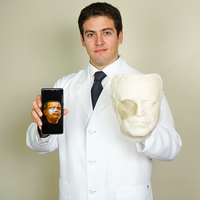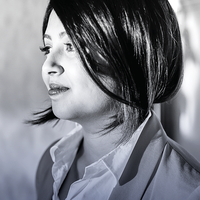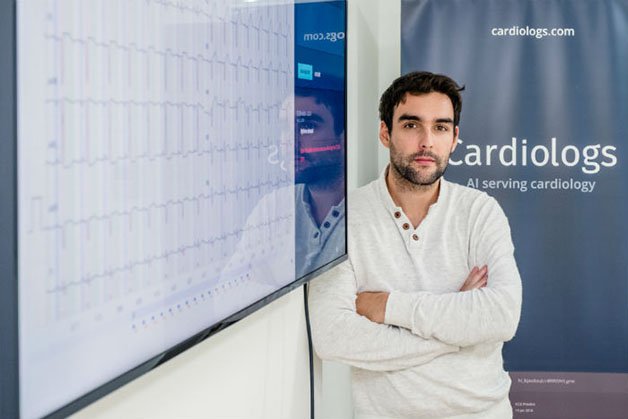That the heart is a muscle that generates electricity has been known since the 19th Century. In 1924, Willem Einthoven won the Nobel Prize in Physiology or Medicine for discovering the electrical characteristics of several cardiovascular conditions and, since then, electrocardiograms (ECGs) are one of the most well-used tools in this field. Although its processing has improved a great deal, analysing the heart’s electrical activity continues to be a challenge for medical professionals. The French engineer Yann Fleureau was surprised that this was something "so problematic and tedious", and he decided to use his technical knowledge to improve it thanks to artificial intelligence (AI).
The young man, whose work has made him one of the winners of Innovators Under 35 Europe 2018 from MIT Technology Review, remembers: "We became aware of the great applications of machine learning in facial recognition and interpreting images, and we thought about applying it in cardiology". This was how in 2014 he co-founded Cardiologs, a medtech start-up that has developed an AI that is able to carry out a cardiac examination "as well as the best human being, and accessible from any digital device".
The report is obtained with just the click of a button, after simply uploading the electrocardiogram to the platform. It is the "first algorithm for analysing ECGs based on deep learning neural networks, which gets increasingly smart thanks to the patient data that we use to train it", he indicates. He explains that, being a cloud-based platform, "patient security is fundamental, so the whole infrastructure is protected and encrypted".
As well as improving the analysis of ECGs, his aim was to democratise access and scale up their use. The innovator explains: "There are thousands of patients being monitored at home with traditional medical devices that register palpitations for which there is no explanation. With the AI we can monitor and diagnose arrhythmia conditions before it’s too late". Users who suffer from these kinds of conditions would be able to manage them and react in time if their medication is not working as it should or if there is a crisis.
For the young innovator, access to smart ECGs could also be critical in the developing world - places where the nearest hospital might be four hours away and not all consulting rooms have specialist doctors. "This AI can help doctors to correctly diagnose a heart attack. The idea is not to replace them, rather to help them so that they can make the best possible decision, especially in delicate settings", he explains.
"One of the great promises of AI in medicine is the ability for it to find patterns in data that we humans cannot see", he affirms. Although it has not yet reached that stage, Cardiologs is hoping to go further and "not just diagnose, but predict". The project has won a number of prizes, such as France is AI in 2017, and it is the first project based on deep learning that has managed to cross the regulatory barrier permitting its use. They have already begun to market it in Europe and the United States, and tests have been carried out in India. Fleureau indicates that "the next step is to extend its reach, collect more data and continue improving the tool".
Marta Príncep, CEO of Oncokids Biosciences and member of the jury for Innovators Under 35 Europe 2018, believes that Cardiologs "solves a real need both for patients and for doctors, and what’s more is that it is a highly scalable technology that could be used with other verticals in future".
By Patricia R. Guevara
Translation: Lisa Rushforth




